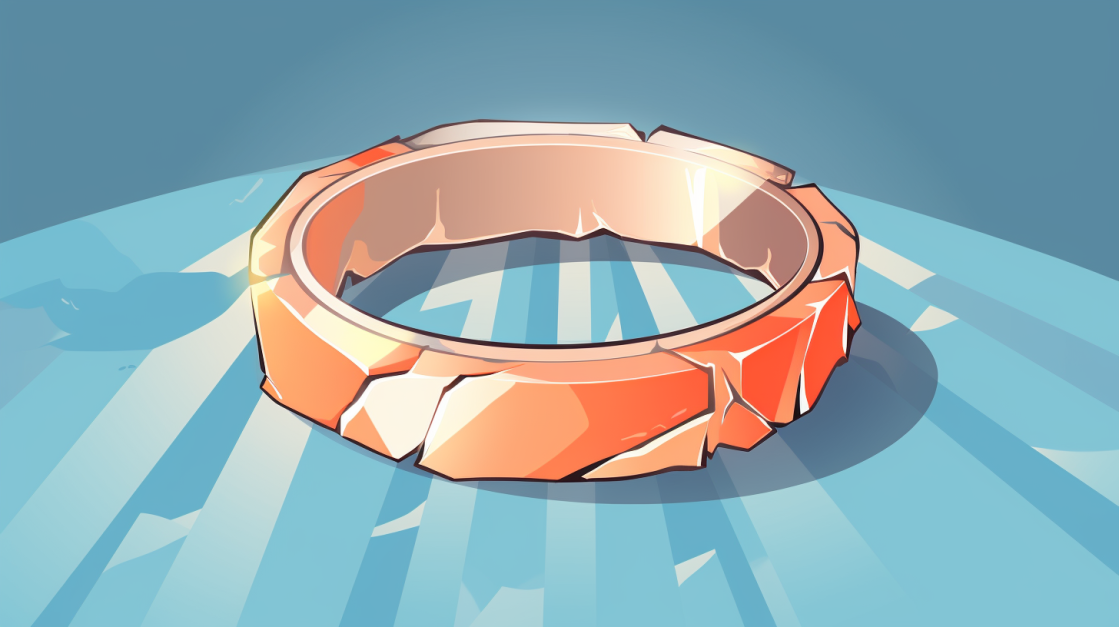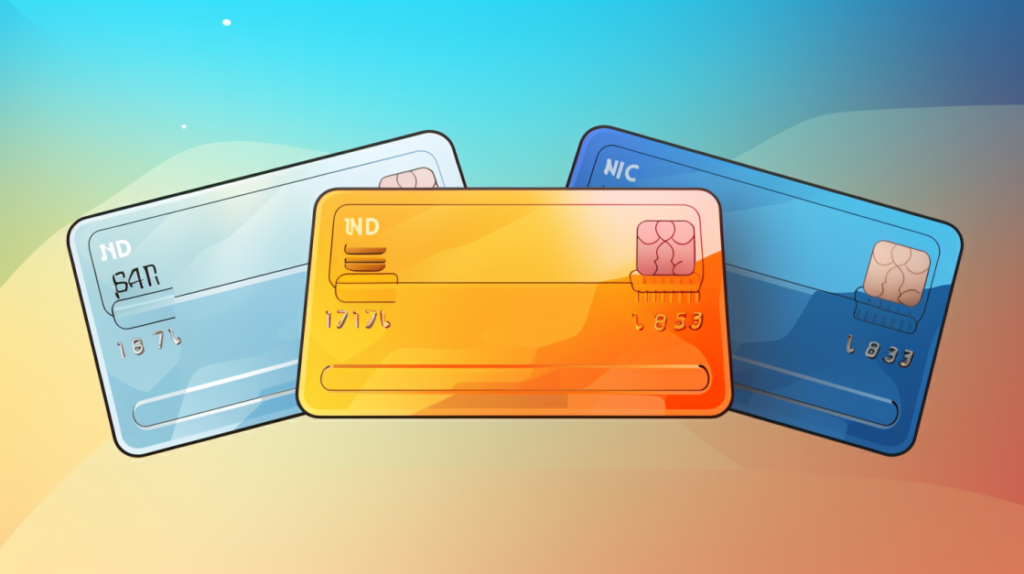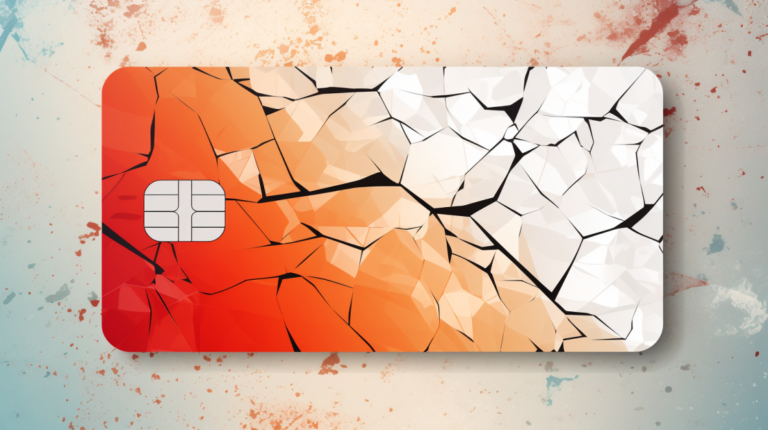How Divorce Affects Your Credit

Divorce can feel like you’re navigating a stormy sea without a compass, and the worry about your credit score is just another wave crashing down. I understand that all too well because startlingly, 54% of divorced women witness their credit scores take a hit during separation—a turbulence that demands immediate attention.
So let’s turn this around. In this article, I’ll share pragmatic steps and insights to steer your financial ship safe through these choppy waters while keeping your credit score intact and secure for tranquil days ahead.
Are you ready to set sail towards comforting shores?.
Key Takeaways
- Divorce can hurt your credit score. This happens mainly because of late or missed payments on accounts in both names.
- Keep money separate during and after divorce. Close joint credit cards together to keep debt from growing.
- Women may have a harder time with their credit after divorce due to earning less money, on average.
- Fixing hurt credit takes steps like tracking bills, cutting back spending, and not using more than 30% of your card limit.
- Building good financial habits and managing debt helps improve credit scores after a split-up.
How Divorce Can Impact Credit Scores

Divorce has a way of wreaking havoc on credit scores. When both names are linked to joint accounts, any late or missed payments can negatively affect both parties. Closing joint credit cards might seem like the best solution but it could take a toll on your credit utilization rate, hurting your score even more.
Divorce certainly adds an emotional strain and managing these kinds of financial ups and downs is no slice of cake either.
Joint accounts and credit reports
Having joint accounts during marriage can be a worry after divorce. These accounts stay on credit reports even when you are not together anymore. If payments for these accounts come late or don’t get paid at all, both your and your ex’s credit scores will drop.
A good move is to close any joint cards that were opened while married. Doing this helps make sure each person keeps their own credit in check. It also stops one person from adding debt that the other would have to pay for later.
You should take away any status of an “authorized user” to stop your ex from using your card without telling you first. Freezing your credit report is another safe play as it blocks anyone else from opening new lines of credit with movable points like revenge in mind!
Missed payments on joint debt
Paying bills late harms your credit score. This is bad in a divorce case. Both you and your ex-partner’s name may be on the joint debt. If one person fails to pay, it can hurt both people’s credit scores.
Say this reality plays out during our divorce process. My spouse doesn’t pay for a car loan we have together. The bank will treat me no different than him because my name is also on that loan! This leaves a mark on my credit report too, not just his.
It’s the same with all shared debts like mortgages or loans we took while married.
Closing joint credit cards
Shutting down joint credit cards is not that easy in a divorce. Both people have to say yes to close the card. If you don’t do it right, your credit score might drop a bit. Worse yet, if someone keeps using the card and doesn’t pay off debts, both party’s scores will dive.
That ugly fact stays on credit reports even after you part ways. So make smart moves about joint cards during a split-up.
Why Divorce Might Affect Women’s Credit More

Divorce can hit women harder in terms of credit scores. Big financial problems often hurt women more after a split-up. Women make less money than men on average, says the Bureau of Labor Statistics.
This may lead to a sharp drop in family income after divorce. It’s not rare to see danger signs for credit during a break-up.
In fact, 54% of divorced women noted that their credit went down while married, according to Experian findings. Divorce also made it tough for them to get new loans or cards alone due to bad scores and histories tied with past joint accounts.
To top it off, around half the time, ex-husbands played roles in wrecking these women’s credits as per studies!
How to Protect Your Credit During a Divorce
A divorce can be an emotionally challenging time, but one must not ignore the financial aspects. Adopting strategies like understanding your credit report intimately, managing joint accounts smartly and adjusting quickly to a change in income are pivotal in securing your credit during this tough phase.
Read on for a deep dive into practical pointers that can shield your financial health while you navigate through the journey of separation.
Understand exactly what’s on your credit report
I learned about my credit report. It was first to see what it said. My report listed all the places where I borrowed money. Here’s more about what I did:
- I asked for a free copy of my credit report from AnnualCreditReport.com.
- I looked at all the information on my report.
- It showed me all the places that lent me money like banks, and credit card firms like Chase, Capital One, Citi and Discover.
- Some accounts were joint accounts with my ex – spouse.
- I had some missed payments on these joint accounts which hurt our credit scores.
- Even after our divorce these joint accounts were there on both of our reports as well.
- This happened because late payments or defaults stay on your credit report for seven years.
- Checking made sure none of the details were wrong or missing.
Consider keeping accounts as separate as possible
It’s smart to keep our money separate when we divorce. We should start now. This step can stop credit score damage on both sides. Each of us has accounts in our name only after the split.
It keeps our own credit report safe from late or missed payments by the other person. Also, creditors may ignore what a divorce decree says about who pays debts. So, it is better for each of us to pay off and close joint accounts before we finish going through with a divorce plan.
Deal with jointly held debt
Handling jointly held debt in a divorce can be tricky. Here are some steps to make it easier:
Adjust for change in income
Money often changes a lot with divorce. Both sides need to live on less cash now. Most men in the US get paid more than women, so women may have it harder after a split. It’s not rare for divorced women to see their credit scores slide down.
But there are ways that can keep your credit safe while you adjust to having less money. A good plan is closing joint credit cards right away. You don’t want old bills piling up and hurting your score even more! Another wise step is splitting shared accounts if you can agree on this with your ex-partner.
Working as a team helps manage any shocks from income changes better.
Managing Debt in a Divorce
 When you’re charting out your post-divorce finances, managing debt becomes crucial. First and foremost, familiarize yourself with your outstanding balances on credit card accounts and jointly held debt like mortgages or car loans.
When you’re charting out your post-divorce finances, managing debt becomes crucial. First and foremost, familiarize yourself with your outstanding balances on credit card accounts and jointly held debt like mortgages or car loans.
Keep tabs on your credit utilization rate, trying to keep it as low as possible to protect your score. You might need to assess options like refinancing loans for better interest rates or transitioning obligations into individual names rather than joint liability.
Remember: proper planning today can safeguard your financial health tomorrow.
Changing credit card accounts
Divorce calls for a change in credit card accounts. Here’s how you can do this:
- First, check your credit reports. Use AnnualCreditReport.com or the services of Experian and other credit agencies. Look at all the accounts that have your name on them.
- Second, open new personal and not joint credit cards. Banks like Capital One, Chase or Citi can help with this.
- Third, talk to the company behind the joint card. Ask them to take out your ex – partner’s name. Sometimes they may ask for proof, such as the divorce decree.
- Fourth, freeze your credit reports. This stops anyone from opening new accounts in your name. You might do this if you worry about identity theft.
- Fifth, keep paying off debt on any joint card. Remember that a divorce court’s choice does not affect who must pay a card bill according to lenders like American Express or Discover.
Monitoring your credit utilization rate
Keep a close eye on your credit use rate. This is the percent of your available credit you are using. Using less than 30% of your credit is good for building a strong score. Be sure to check this number often, especially during and after the divorce.
You can do this yourself or use a tracking service from most major banks.
How Can I Use Free Credit Monitoring Tools to Track Changes in My Credit During a Divorce?

Divorces can have a significant impact on your credit, making it crucial to stay informed about any changes. Utilizing free credit monitoring tools is an effective way to track shifts in your credit during this vulnerable time. These tools provide real-time updates, alerts, and comprehensive reports, giving you the necessary insights to safeguard your financial well-being throughout the divorce process.
Rebuilding and Establishing Your Credit Post-Divorce
Life after divorce often requires rebuilding; your ruined credit needs to be one of the first tasks, you need to work on for a better financial future. It’s crucial to set up individual accounts if you haven’t already, and meticulously monitor them.
Start slow while taking steps like getting a secured or unsecured credit card and becoming diligent about on-time payments, as these can help repair damaged credit score. Be sure to establish positive payment history – your key weapon in the battle for good FICO score post-divorce.
Securing the services of organizations such as National Foundation for Credit Counseling can also provide guidance for crafting prudent financial habits and managing debt effectively after divorce, leading to independent financial stability.
Repairing a damaged credit score
Fixing a hurt credit score takes time. But don’t worry, you can do it step by step.
- Start keeping track of bills. Pay on time to avoid late fees.
- Look at how much money is left after bills. Cut back if spending is too high.
- Keep an eye on your credit card balance. Try not to use more than 30% of your credit limit.
- Open a new bank account apart from your ex – partner.
- Think about getting a secured card or credit card for building credit.
- Keep the long term in mind. It may be hard now but things will get better.
Establishing credit independently
Let’s now explore how you can build credit independently after a divorce. Here are steps to take:
- Start with checking your credit score. The check shows the money you owe and if you paid on time.
- Get all the joint accounts changed into names of single owners.
- Try to pay off all your joint debts as soon as you can.
- Make sure no new debt arises from any joint account after parting ways.
- Open bank accounts in your name only to have control over your money.
- If needed, reach out for help to deal with payments and other money matters.
- Building credit independently
- Always pay your bills on time, even the smallest ones count towards building good credit.
- Keep watch of how much you owe and aim for low numbers always.
- Use less than one third of what you may borrow from lenders or banks.
- Spread borrowing over different types of loans and always make payments on time.
- Show restraint, don’t get more loans even if you’re allowed to do so.
- Opening new individual bank accounts
- Choose a bank that suits you best and open an account just in your name.
- and provide options for low – cost checks or free online banking.
- Building up savings
- and build an emergency fund so that unforeseen expenses don’t have such a heavy impact on income or current lifestyle.
- put aside some earnings into high – yield savings accounts available in online banks.
Conclusion

In the end, divorce can shake your credit hard. But you can protect it. Be smart when dealing with joint accounts and shared debt. It’s your money journey, guide it well even during tough times like a divorce.
FAQs
1. How does divorce affect my credit?
Divorce can hurt your credit if joint finances are not taken care of, like shared debt payments and bill-paying. A missed payment can send negative information to the credit bureaus.
2. What happens to our Bank of America account after a divorce?
After divorce, you may choose to close or separate your joint bank accounts including those at Bank of America. You might do this as part of dealing with marital assets and for personal financial independence.
3. Can I keep my home in a divorce without damaging my credit?
You could try to sell the house or refinance it into one name but if you don’t manage these things right, they may damage your credit score or increase loan liability.
4. Is there any help available if I’m having trouble with household income after getting divorced?
Yes! There are ways out such as applying for alimony or child support during custody issues that come up because of gender pay gap problems also.
5. How can I rebuild my damaged credit after a divorce?
There are many options for rebuilding your account balance including taking on new debt responsibly & keeping an eye on hard inquiry numbers by monitoring yourself using services like Credit Management Training Providers.
6. Do mistakes from post-divorce emotional matters leave info on my record forever?
No! Negative information will eventually fall off in time even when there’s been delinquent behavior like missing Bill-Paying obligations which show how people deal with financial changes.






